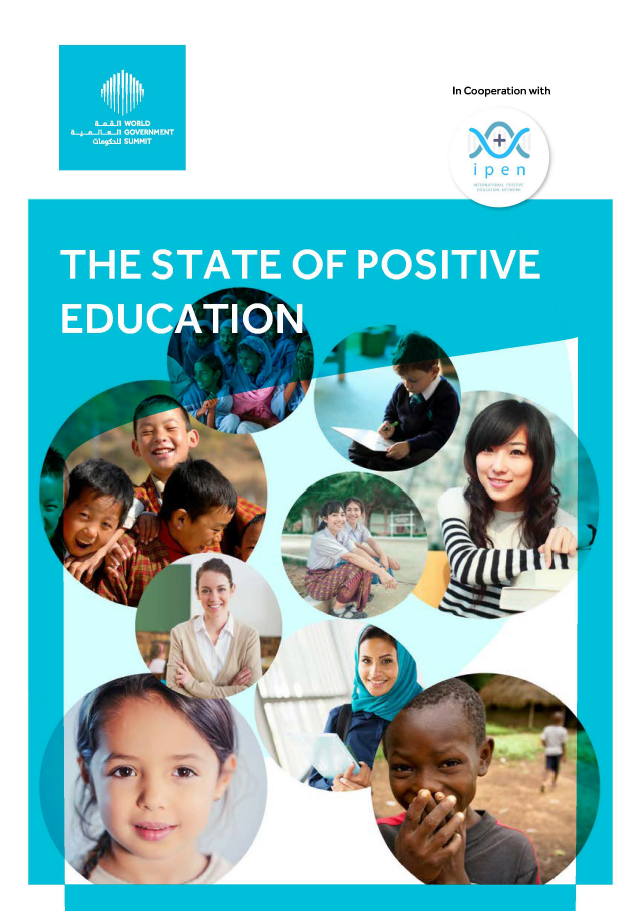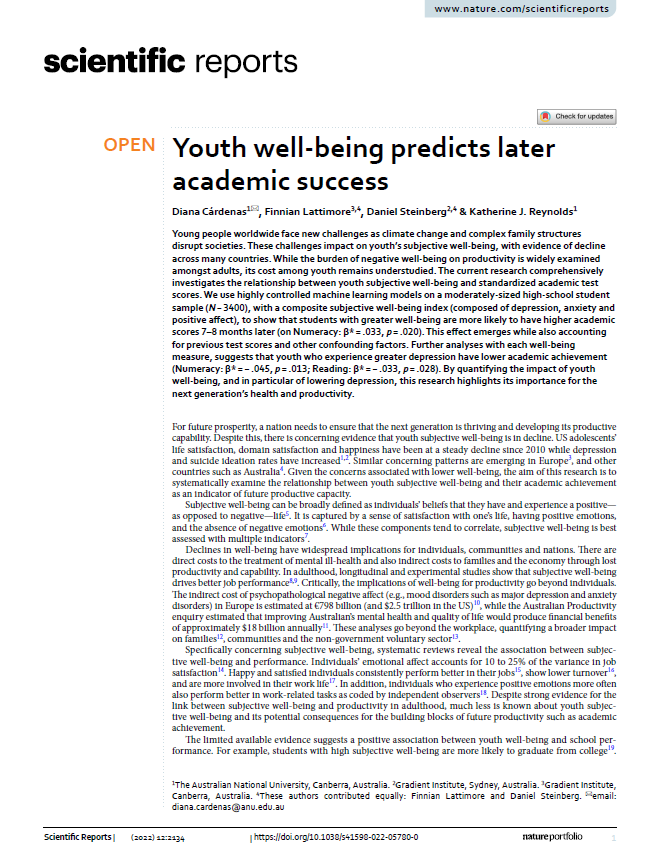
Youth well-being predicts later academic success
Young people worldwide face new challenges as climate change and complex family structures disrupt societies. These challenges impact on youth’s subjective well-being, with evidence of decline across many countries. While the burden of negative well-being on productivity is widely examined
amongst adults, its cost among youth remains understudied. The current research comprehensively investigates the relationship between youth subjective well-being and standardized academic test scores. We use highly controlled machine learning models on a moderately-sized high-school student sample (N ~ 3400), with a composite subjective well-being index (composed of depression, anxiety and positive affect), to show that students with greater well-being are more likely to have higher academic scores 7–8 months later (on Numeracy: β* = .033, p = .020). This effect emerges while also accounting for previous test scores and other confounding factors. Further analyses with each well-being measure, suggests that youth who experience greater depression have lower academic achievement (Numeracy: β* = − .045, p = .013; Reading: β* = − .033, p = .028). By quantifying the impact of youth
well-being, and in particular of lowering depression, this research highlights its importance for the next generation’s health and productivity.
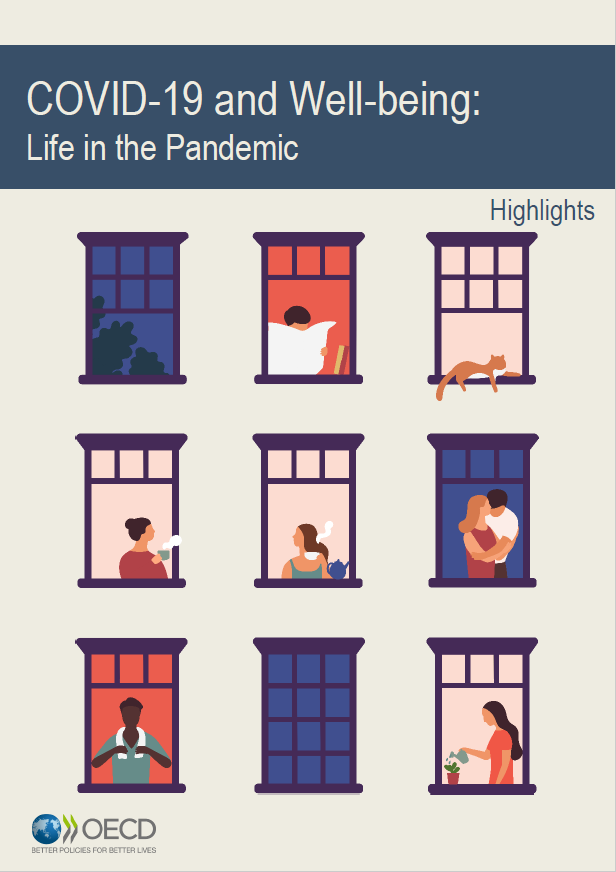
COVID-19 and well-being: Life in the pandemic
The COVID 19 pandemic is having far reaching consequences for how we live work and connect with one another, as well as for the economic, human, social and environmental systems that support well being over time The OECD Well being Framework offers a way
to systematically capture the human impacts of COVID 19 and provide a more holistic picture across the policy spectrum.
In the months since March 2020 when the World Health Organization first declared COVID 19 a global pandemic, the situation rapidly cascaded from a public health crisis to a global economic and social crisis with both short and potentially long term consequences.

A systematic review and meta-analysis of psychological interventions to improve mental wellbeing
Our current understanding of the efficacy of psychological interventions in improving mental states of wellbeing is incomplete.
This study aimed to overcome limitations of previous reviews by examining the efficacy of distinct types of psychological interventions, irrespective of their theoretical underpinning, and the impact of various moderators, in a unified systematic review and
meta-analysis. Four-hundred-and-nineteen randomized controlled trials from clinical and non-clinical populations (n = 53,288)
were identified for inclusion. Mindfulness-based and multi-component positive psychological interventions demonstrated
the greatest efficacy in both clinical and non-clinical populations. Meta-analyses also found that singular positive psychological
interventions, cognitive and behavioural therapy-based, acceptance and commitment therapy-based, and reminiscence
interventions were impactful. Effect sizes were moderate at best, but differed according to target population and moderator,
most notably intervention intensity. The evidence quality was generally low to moderate. While the evidence requires further
advancement, the review provides insight into how psychological interventions can be designed to improve mental wellbeing.
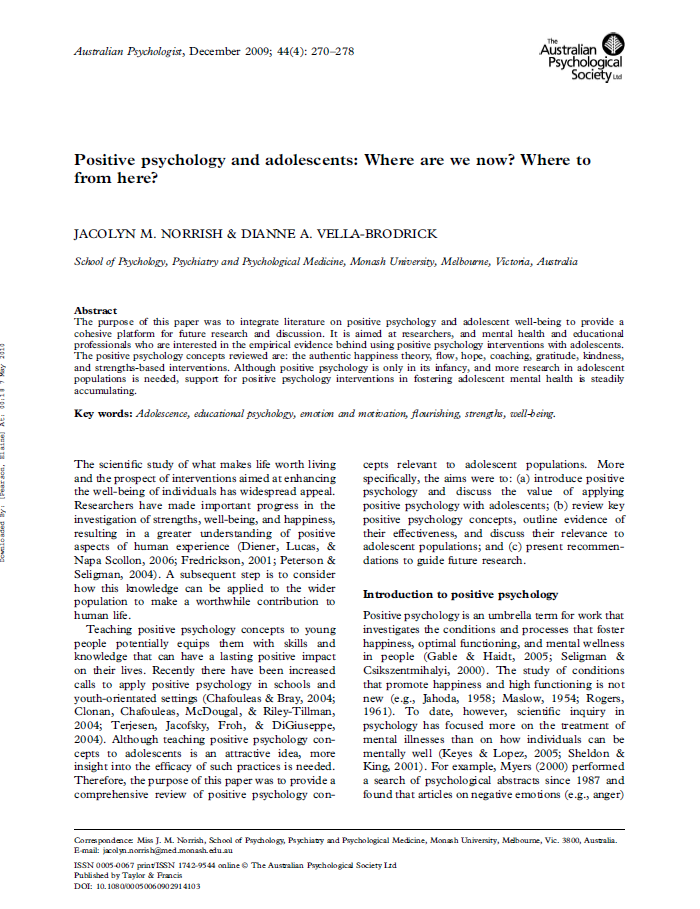
Positive psychology and adolescents: Where are we now? Where to from here?
The purpose of this paper was to integrate literature on positive psychology and adolescent well-being to provide a cohesive platform for future research and discussion. It is aimed at researchers, and mental health and educational professionals who are interested in the empirical evidence behind using positive psychology interventions with adolescents. The positive psychology concepts reviewed are: the authentic happiness theory, flow, hope, coaching, gratitude, kindness, and strengths-based interventions. Although positive psychology is only in its infancy, and more research in adolescent populations is needed, support for positive psychology interventions in fostering adolescent mental health is steadily accumulating.
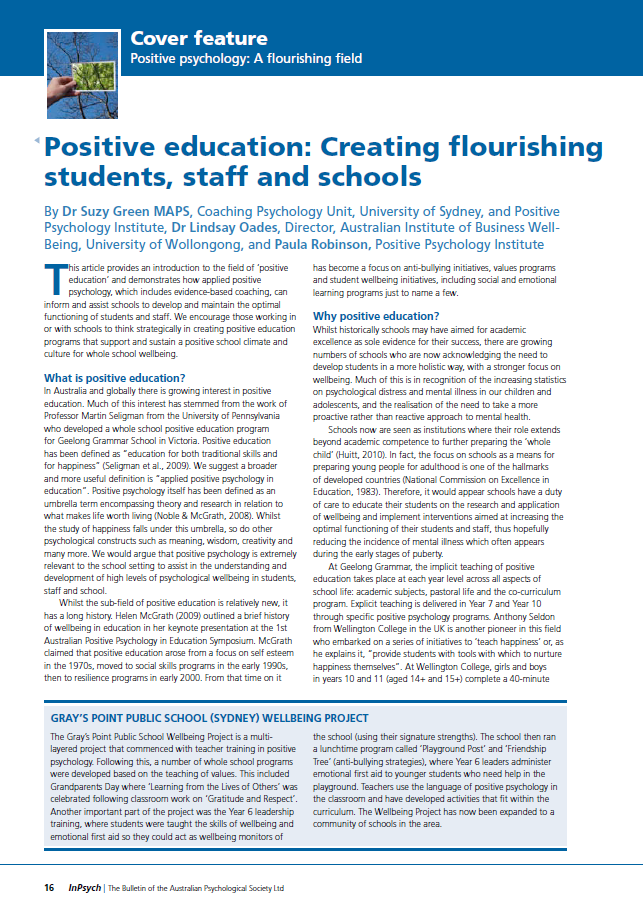
Positive education: Creating flourishing students, staff and schools
This article provides an introduction to the field of ‘positive
education’ and demonstrates how applied positive psychology, which includes evidence-based coaching, can inform and assist schools to develop and maintain the optimal functioning of students and staff. We encourage those working in or with schools to think strategically in creating positive education programs that support and sustain a positive school climate and culture for whole school wellbeing.
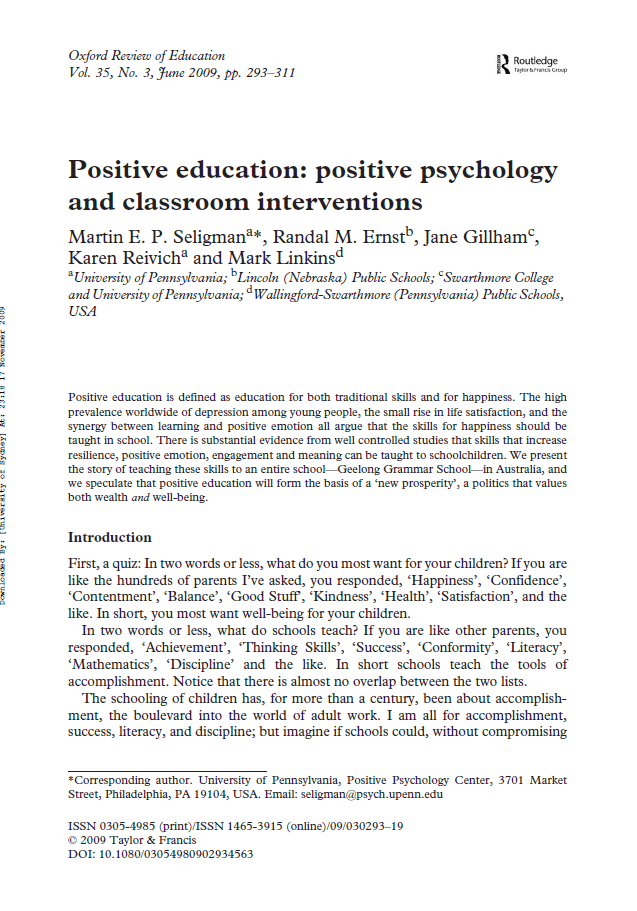
Positive education: Positive psychology and classroom interventions
Positive education is defined as education for both traditional skills and for happiness. The high prevalence worldwide of depression among young people, the small rise in life satisfaction, and the
synergy between learning and positive emotion all argue that the skills for happiness should be taught in school. There is substantial evidence from well controlled studies that skills that increase
resilience, positive emotion, engagement and meaning can be taught to schoolchildren. We present the story of teaching these skills to an entire school—Geelong Grammar School—in Australia, and we speculate that positive education will form the basis of a ‘new prosperity’, a politics that values both wealth and well-being.

Evidence-based approaches in positive education: Implementing a strategic framework for well-being in schools
The Positive Education book series provides a comprehensive coverage of the field of positive education, encompassing subjects such as education for wellbeing, personal development, resilience, emotional intelligence, flow, and character strengths. Separate volumes cover each of these subjects, offering depth and complex
understanding of the subject matter, research advances in this area, as well as well evaluated practical sugestions for promoting intended outcomes. Positive education is based on the established discipline of positive psychology, and underpinned by theories and empirical research in this field. It aims to develop the skills of wellbeing, flourishing and optimal functioning in children, teenagers and students, as well as parents and educational institutions. Written by researchers and scholars of positive psychology, this book series offers a range of definitive texts for academics interested in implementing, researching and evaluating positive psychology-based approaches in schools and other educational institutions.



